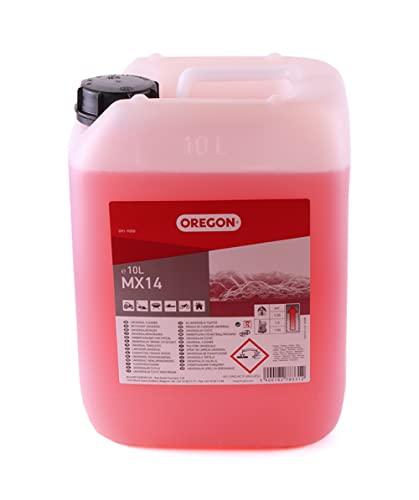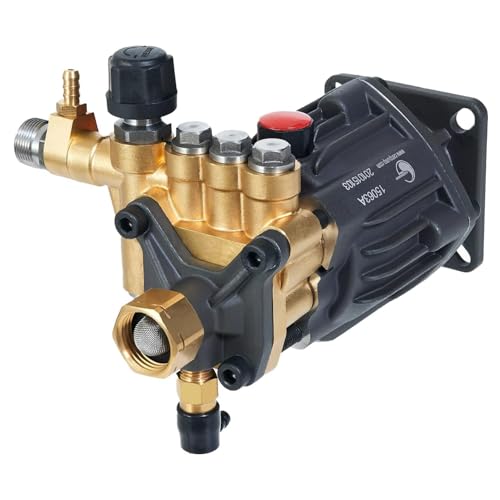
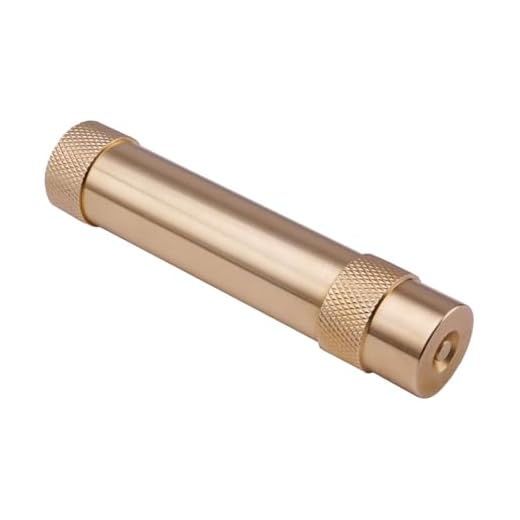


For optimal cleaning results, it’s essential to recognise the core components and operation of a high-pressure cleaning device. The process begins with an electric motor, which transforms electrical energy into mechanical energy, delivering power to the system. This motor drives a pump designed to increase water pressure significantly, making it available for effective cleaning.
The water enters through an inlet valve, passing into the pump chamber where it is pressurised. As the water moves through, it is forced through a narrow nozzle, which amplifies the pressure even further. This creates a powerful jet stream capable of removing dirt, grime, and stubborn stains from various surfaces.
Moreover, adjustable nozzles allow for customisation of the spray pattern, enabling users to switch between intense streams for tough jobs and wider sprays for delicate surfaces. Incorporating additional features such as detergent injection systems enhances cleaning capabilities, allowing for a deeper clean by mixing cleaning solutions with the high-pressure jet.
Regular maintenance of the motor and pump is vital to ensure longevity and consistent performance. Familiarity with the specifications and capabilities of various models can aid in selecting the right unit for your needs. By understanding these fundamental mechanics, achieving immaculate cleanliness with a high-pressure cleaner becomes straightforward.
Understanding the basic components of an electric pressure cleaning unit
Familiarity with key elements of a high-pressure cleaner is vital for optimal performance and maintenance. The primary components consist of a motor, pump, hose, and nozzle.
Motor
The motor functions as the core power source, converting electrical energy into mechanical energy. Typically, these are universal motors, capable of providing high RPMs to drive the pump effectively. It’s advisable to check the power rating; a unit with a minimum of 1500 watts is generally reliable for home use.
Pump
The pump amplifies the water flow and pressure. Axial cam pumps are widely used for residential models due to their balanced output and durability. Always inspect the pump’s specifications; a model rated above 130 bar is suitable for moderate cleaning tasks. Regular maintenance, including checking for leaks and proper lubrication, extends the lifespan of this essential part.
In addition to these components, hoses and nozzles play crucial roles. A reliable high-pressure hose should withstand the water pressure without bursting. Nozzles offer adjustable spray patterns, enabling efficient cleaning on various surfaces. Opt for models that allow easy nozzle changes for enhanced versatility.
Keeping these components well maintained ensures not just effective cleaning but also longevity of this valuable equipment.
Water Intake and Electric Motor Interaction
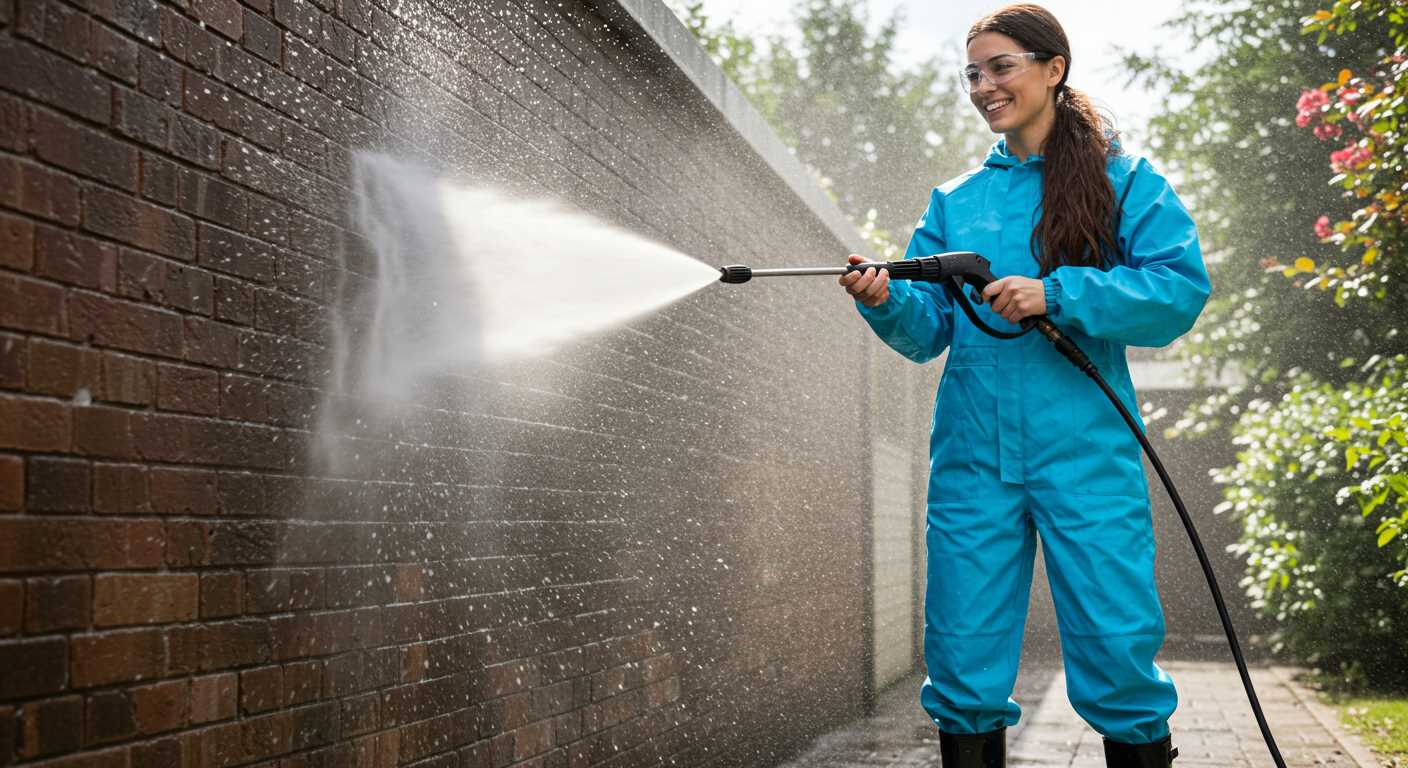
During operation, the link between water intake and the motor is pivotal for achieving optimal performance. This process begins as water enters through the inlet. The presence of a filter prevents debris from causing blockages, ensuring a steady flow to the pump.
The pump, typically a reciprocating type, is activated when the motor energises. Here are the key steps of interaction:
- The motor generates rotational energy, which is transferred to the pump via a shaft.
- This energy drives pistons within the pump, creating suction that draws water through the inlet.
- As the pistons move, they compress the water, significantly increasing its pressure.
- The high-pressure water then exits through the nozzle, ready for application.
Regular maintenance of the water inlet and pump is advised to prevent wear and tear. This ensures uninterrupted operation and enhances the lifespan of the machine. Additionally, using the product with clean water sources maximises efficiency and performance.
Pay attention to the motor’s specifications in relation to the pump’s capacity. An appropriate match between these components significantly affects your cleaning power. A mismatched motor might lead to insufficient water pressure or overworking the system!
Understanding this interaction greatly aids in troubleshooting. If you notice reduced pressure or inconsistent performance, checking the water intake system and ensuring proper motor function is the first step.
The role of the pump in generating pressure
The pump is a critical element in a high-pressure cleaning system, responsible for creating the force needed to propel water through the nozzle at high speeds. A high-quality pump ensures the machine can tackle tough cleaning tasks efficiently.
Most water jet machines utilise a positive displacement pump, commonly of the crankshaft type. This design allows for a consistent and reliable output of water, transforming the input flow into a powerful jet. The pump’s efficiency is determined by factors such as the speed of the motor, the size of the components, and the design of the pump itself.
Key Functions of the Pump
The main functions of the pump include:
- Increasing water pressure to the desired levels.
- Maintaining a constant flow rate.
- Facilitating the transition from low to high pressure seamlessly, providing an adaptable cleaning experience.
Pump Specifications and Performance

When selecting a high-pressure cleaning unit, focus on the pump specifications. Here are a few key metrics to consider:
| Specification | Importance |
|---|---|
| Pressure Rating (PSI) | Indicates the maximum water pressure generated; higher ratings are necessary for tougher jobs. |
| Flow Rate (GPM) | Affects cleaning efficiency; a balance between pressure and flow is essential for optimal performance. |
| Material | Durable materials like brass or stainless steel withstand wear and provide longevity. |
| Type of Pump | Different types yield varying performance; choose based on intended use and requirements. |
Choosing a model with a reliable pump can dramatically enhance cleaning capabilities. Regular maintenance, such as inspecting for leaks and ensuring proper lubrication, extends the life of the pump, thereby ensuring sustained high performance over time.
Adjusting Settings for Various Tasks
To optimise performance, adapt the settings based on the task at hand. For lighter cleaning tasks like washing cars or garden furniture, maintain a lower pressure setting, around 1200 to 1500 PSI. This protects delicate surfaces while still conveying sufficient force to remove dirt and grime.
Higher Pressure for Stubborn Stains
For more challenging jobs, such as removing old paint or tackling greasy stains on driveways, increase the pressure to about 2500 to 3000 PSI. This higher setting ensures that tougher residues are eliminated efficiently without excessive scrubbing.
Wide Fan Nozzle for Large Areas
.jpg)
Utilise a wider fan nozzle for expansive areas. This attachment disperses water over a larger surface, allowing for quicker cleaning. For precision tasks, switch to a narrower nozzle, which concentrates the force, making it effective for targeted applications like cleaning gutters or intricate patio designs.
Understanding the nozzle types and their functions
Choosing the right nozzle is fundamental for optimal performance. Each type serves a unique purpose and contributes to the effectiveness of your cleaning tasks.
Fan Nozzles: These nozzles provide a wide spray pattern, excellent for larger surfaces. A 25-degree nozzle is effective for decks, patios, and vehicles, delivering a balanced mix of power and coverage.
Dirt Blaster Nozzles: This nozzle offers a concentrated stream that’s ideal for tackling tough grime, such as oil stains or mold. The narrow spray angle maximises pressure, effectively removing stubborn deposits from surfaces like concrete driveways.
Soap Nozzles: Specifically designed for applying cleaning solutions, these nozzles usually feature a lower pressure setting. They help distribute soaps and detergents more evenly, ensuring thorough penetration into soiled areas.
Adjustable Nozzles: Versatile in function, adjustable nozzles allow the user to switch between different spray patterns–from wide fan to narrow jet–simply by rotating the nozzle. This adaptability makes them perfect for various jobs, eliminating the need for multiple nozzles.
Turbo Nozzles: Combining features of both fan and dirt blaster nozzles, turbo nozzles use a rotating jet of water to enhance cleaning power. They are particularly effective on hard surfaces, providing deep cleaning while maintaining efficiency.
Utilizing the correct nozzle can significantly reduce time and effort during cleaning tasks. Always assess the surface and type of grime before selecting a nozzle type to achieve the best results.
Impact of Detergents on the Cleaning Process in Pressure Systems
Utilising detergents can significantly enhance the cleaning efficiency of high-pressure systems. These cleaning agents penetrate dirt and grime, breaking down tough residues that water alone may struggle to remove.
Types of Detergents
- Alkaline Detergents: Effective against grease and oil, making them ideal for automotive and kitchen cleaning.
- Acidic Detergents: Best suited for removing mineral deposits and rust stains, commonly used in bathroom applications.
- Biodegradable Detergents: Environmentally friendly options, suitable for outdoor use such as washing vehicles and patios.
Application Methods
- Pre-soaking surfaces with detergent can loosen dirt before applying high-velocity jets.
- Using a dedicated detergent tank allows for effortless mixing and spraying during operations.
- Opt for a foam applicator to ensure even distribution of the detergent on surfaces.
Always refer to the detergent manufacturer’s instructions for dilution ratios and compatibility with your equipment. Using the wrong type may lead to damage or reduced effectiveness. Regular maintenance of equipment, including rinsing out detergent systems, is crucial for longevity.
Safety Features Built into Electric Pressure Cleaners
Prioritising safety is crucial. Manufacturers incorporate several protective measures to prevent accidents while using these machines. Automatic shut-off systems activate when the trigger is released, which conserves energy and reduces the risk of overheating. This feature not only prolongs the lifespan of the device but also promotes user safety.
GFCI Protection
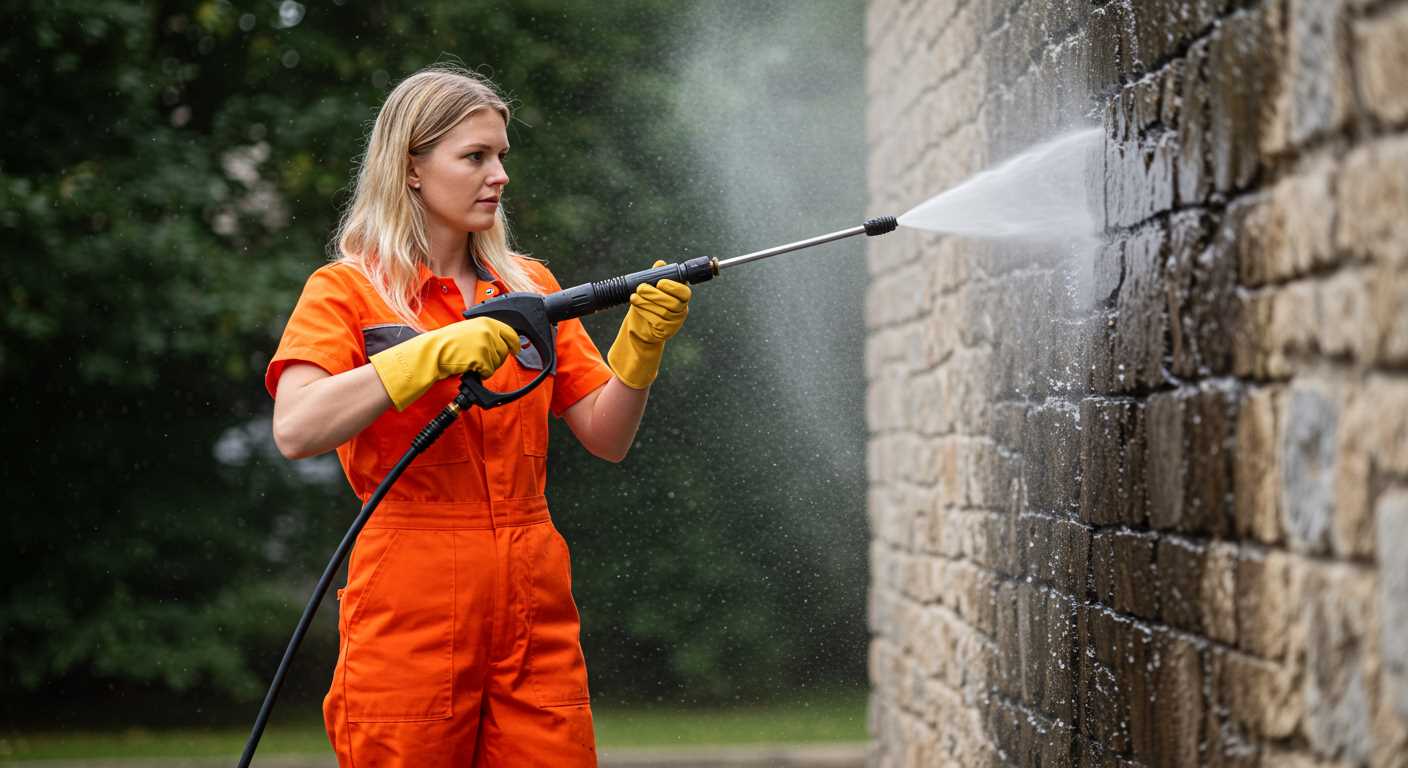
Ground Fault Circuit Interrupter (GFCI) outlets are standard in many models. This protection mechanism shuts down the power supply if it detects a ground fault, significantly reducing the risk of electric shock, especially in wet conditions.
Pressure Control Mechanisms
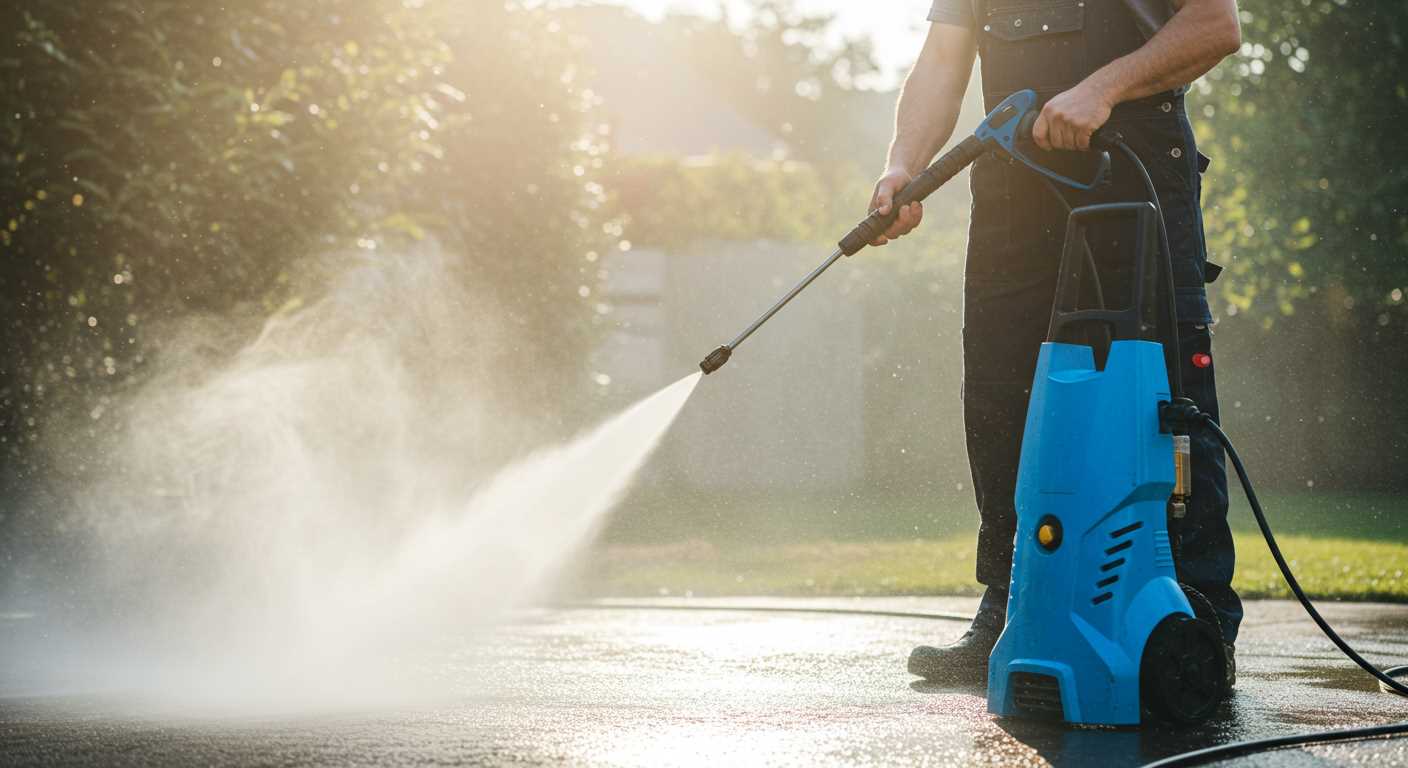
Adjustable pressure settings allow users to tailor the force of water based on cleaning requirements. This feature prevents damage to surfaces and reduces the chances of injury caused by excessive water pressure. Additionally, detergent injection systems include mechanisms to ensure chemicals are mixed correctly, minimising contact with hazardous substances during operation.
Always ensure that the equipment is properly grounded and that all connections are secure. Following these guidelines increases safety when handling and operating the machine. Regular maintenance checks also contribute to overall operational safety, as worn-out components can lead to dangerous malfunctions.
Common maintenance tips for prolonging the lifespan of your electric pressure cleaner
Regularly check and clean the filter to ensure optimal water flow. A clogged filter can reduce efficiency and may damage internal components.
Always store the machine in a dry and secure location to prevent rust and deterioration of parts. For extended periods of non-use, keep it in a temperature-controlled environment.
Inspect the high-pressure hose for any cracks or wear. Replace any damaged hoses immediately to avoid leaks that can lead to significant issues.
Periodically lubricate moving parts as recommended in the manufacturer’s manual. This keeps everything operating smoothly and decreases wear and tear on mechanical components.
After each use, run clear water through the system to flush out any detergent residue. This prevents build-up that can hinder performance over time.
Check the power cord for any frays or damage to avoid electrical hazards. Make sure connections are secure to ensure safe operation.
Inspect all nozzles and keep them clean. Blockages can reduce the effectiveness of the spray and lead to increased wear on the pump.
Lastly, adhere to the manufacturer’s maintenance schedule. Regular servicing can catch potential issues early, extending the life of your equipment significantly.

